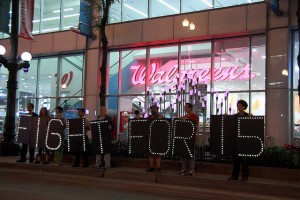
San Francisco recently passed legislation which will eventually increase the minimum wage to $15 an hour in incremental, planned hikes. On the heels of the “Fight for 15” movement, this seems like good news for those living on or near the minimum wage. As explained by an article on NBC online, with help from CUNY Graduate Center’s Ruth Milkman, a sociologist of labor and labor movements, people may not start celebrating just yet.
Many people working on the minimum wage at the moment, for example, work multiple jobs. As Milkman states, “[I]f you’re working at the current minimum wage in a lot of places, you’re still in poverty, especially if you’re supporting other people.” When the wage is going to be increased in gradual increments, those gradual changes may not make much of a dent in what it takes to support oneself or dependents, especially in areas experiencing gentrification. Consequentially, as Milkman explains, this can create a “lot of discontent in a lot of the working population.”
Indeed, as basic struggles of living on the minimum wage continue after slight increases, there can be downsides as well. Businesses which rely on a greater proportion of minimum-wage workers can be more likely to operate in low-income areas, such as fast-food restaurants. Therefore, if businesses raise prices to handle paying a higher wage, the minimum-wage-hike could be hurting the people it was meant to help. At the moment, San Francisco is leading the way on raising the minimum wage, but don’t wager that the discussions are over just yet.

Comments 1
Letta Page — July 13, 2015
To learn more about social science research on the minimum wage, be sure to check out two of our "There's Research on That!" quicklit reviews:
Myths of Maximizing the Minimum Wage
http://thesocietypages.org/trot/2013/10/31/myths-of-maximizing-the-minimum-wage/
Fast Food Strikes Bring Everyone to the Table
http://thesocietypages.org/trot/2014/09/23/fast-food-strikes-bring-everyone-to-the-table/